|
|
|
Your weekly dose of evidence
|
|
We might live in reasonably close proximity but a surprising number of Australians feel lonely and socially isolated – and it's impacting their health. Lonely Australians report higher levels of social anxiety and depression, poorer quality of life, and more headaches, stomach problems, and physical pain. It's not just an issue for the elderly; younger adults report significantly more social anxiety than older Australians, as Michelle Lim explains.
|
Fron Jackson-Webb
Deputy Editor/Senior Health + Medicine Editor
|

|
|
|
|

Younger Australians struggle more with loneliness than older generations.
Toa Heftiba
Michelle H Lim, Swinburne University of Technology
Half of Australians feel lonely for at least one day a week, while one in four feel lonely for three or more days. This can impact on sleep, heart health and levels of anxiety.
|
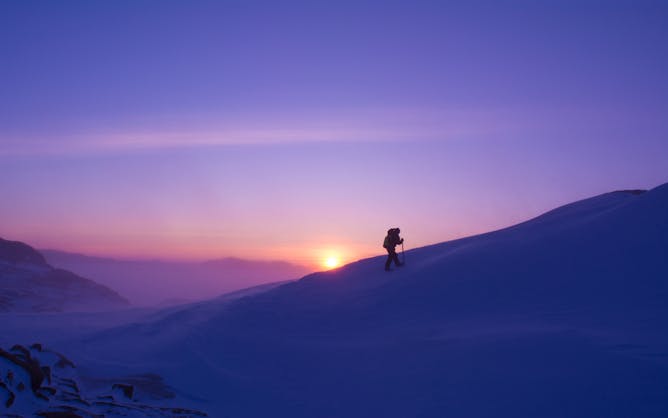
Few work environments offer greater isolation than Antarctica.
Shutterstock
Agustin Chevez, Swinburne University of Technology
Isolation at work can be unhealthy. But it can also be a good thing – as this researcher found out when he walked solo from Melbourne to Sydney.
|

Mick Tskias/AAP
Michelle Grattan, University of Canberra
Ahead of the release of the most comprehensive data on loneliness in Australia, by the Australian Psychologists Society, Labor frontbencher Andrew Giles speaks about this "contagious phenomenon".
|
From the archives: loneliness
|
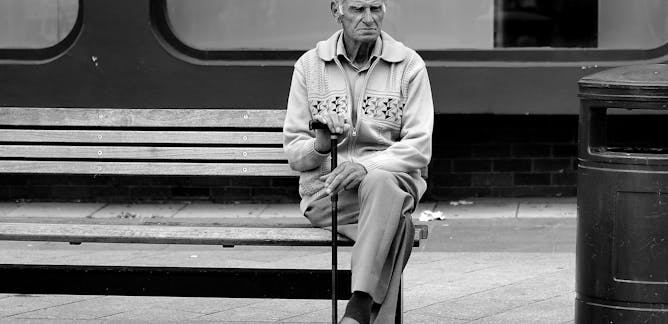
Michelle H Lim, Swinburne University of Technology
The unpleasant feelings of loneliness are subjective. Researchers have found they are less related to the amount of time spent alone and more related to the quality of relationships.
| |
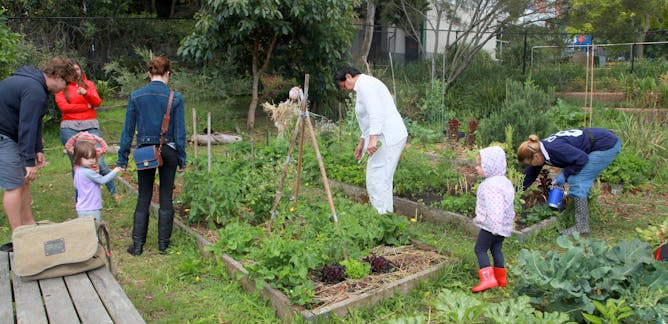
Tony Matthews, Griffith University; Joanne Dolley, Griffith University
Third places are shared spaces where people can informally socialise. As a potential antidote to the modern scourge of loneliness, it's worth asking what makes the best of these places tick.
|
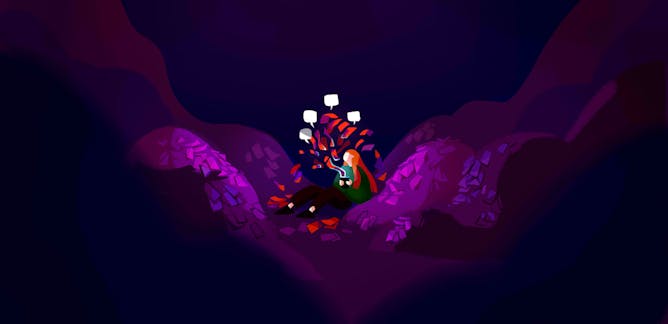
Michael Cowling, CQUniversity Australia; Robert Vanderburg, CQUniversity Australia
As we all become mini publishers, we are losing the interactivity that fosters meaningful and healthy social interaction.
| |
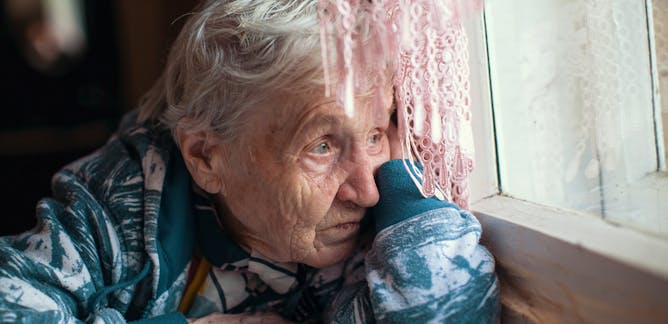
Michelle H Lim, Swinburne University of Technology
The government has announced funding to combat loneliness in the elderly.
|
|
|
From our UK and US sites: loneliness
|

Edward Hopper’s ‘Office in a Small City’ (1953).
Gandalf's Gallery
Amelia S. Worsley, Amherst College
Although loneliness may seem timeless and universal, the word seems to have originated in the 16th century,
|
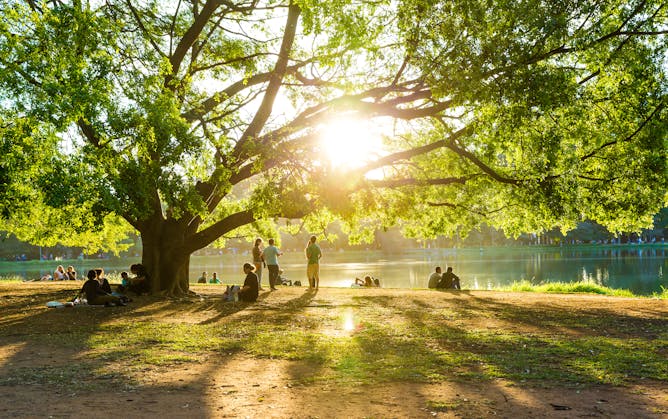
Filipe Frazao / Shutterstock.com
Julian Dobson, University of Sheffield
Green spaces can help to address loneliness. But they are highly vulnerable to austerity.
|
|
|
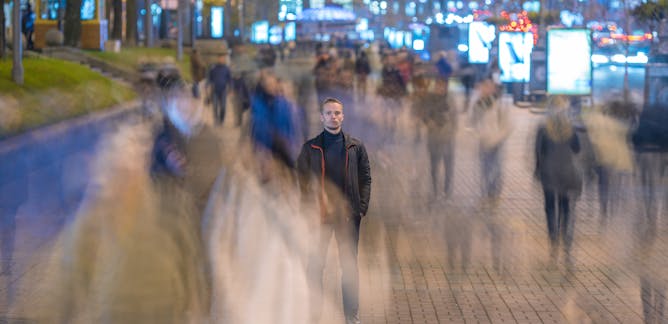
Sara Konrath, Indiana University-Purdue University Indianapolis
Recent news reports suggest that the US is experiencing a loneliness epidemic. But the research is a bit more complicated.
| |
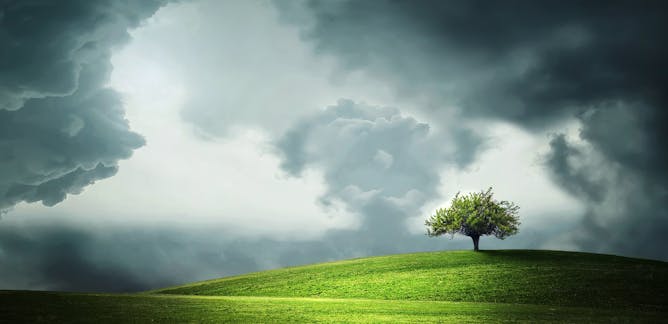
Joe Smith, University of Liverpool
The condition is nothing short of a public health emergency.
|
|
|
Expert answers to serious, weird and wacky questions
|
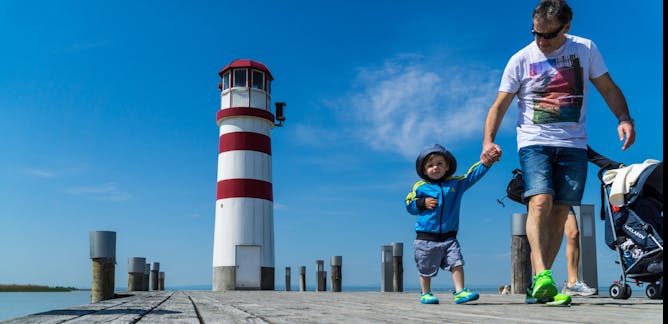
Anna Vinkhuyzen, The University of Queensland
Every human carries an instruction booklet with a very special code, called DNA. Our eyes cannot read the code, but our bodies can. The code tells our body what to do and how to look.
| |

Jonti Horner, University of Southern Queensland
There are probably more than a million planets in the universe for every single grain of sand on Earth. That's a lot of planets. My guess is that there probably is life elsewhere in the Universe.
|

Alexandra Hansen, The Conversation
Five experts were divided on whether or not we should choose the "light"dairy option.
| |
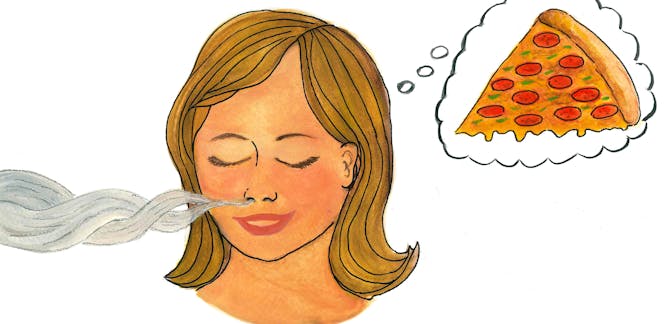
Rodrigo Suarez, The University of Queensland
The parts of the brain that get 'smell signals' from the nose also do other things, such as storing memories or provoking emotions. That is why some smells can bring back old memories.
|
|
|
|
|
| |
Featured jobs
|

|
Deakin University — Newtown, Victoria
|

|
La Trobe University — Bundoora, Victoria
|

|
RMIT University — Melbourne, Victoria
|

|
Swinburne University of Technology — Hawthorn, Victoria
|
|
|
|
| |
| |
| |

|
| |
| |
| |
Featured events
|

|
Clemenger Auditorium, National Gallery of Victoria, 180 St Kilda Road, Southbank, Melbourne, Victoria, 3000, Australia — La Trobe University
|

|
Melbourne Convention and Exhibition Centre (MCEC) 1 Convention Centre Place , South Wharf, Victoria, 3000, Australia — The Conversation
|

|
Deakin Downtown, Level 12, Tower 2 Collins Square, 727 Collins Street, Docklands, Victoria, 3008, Australia — Deakin University
|

|
The University of Sydney, Sydney, New South Wales, 2006, Australia — University of Sydney
|
|
|
|
| |
| |
| |
| |
| |
|
|
|
|
|
|
|